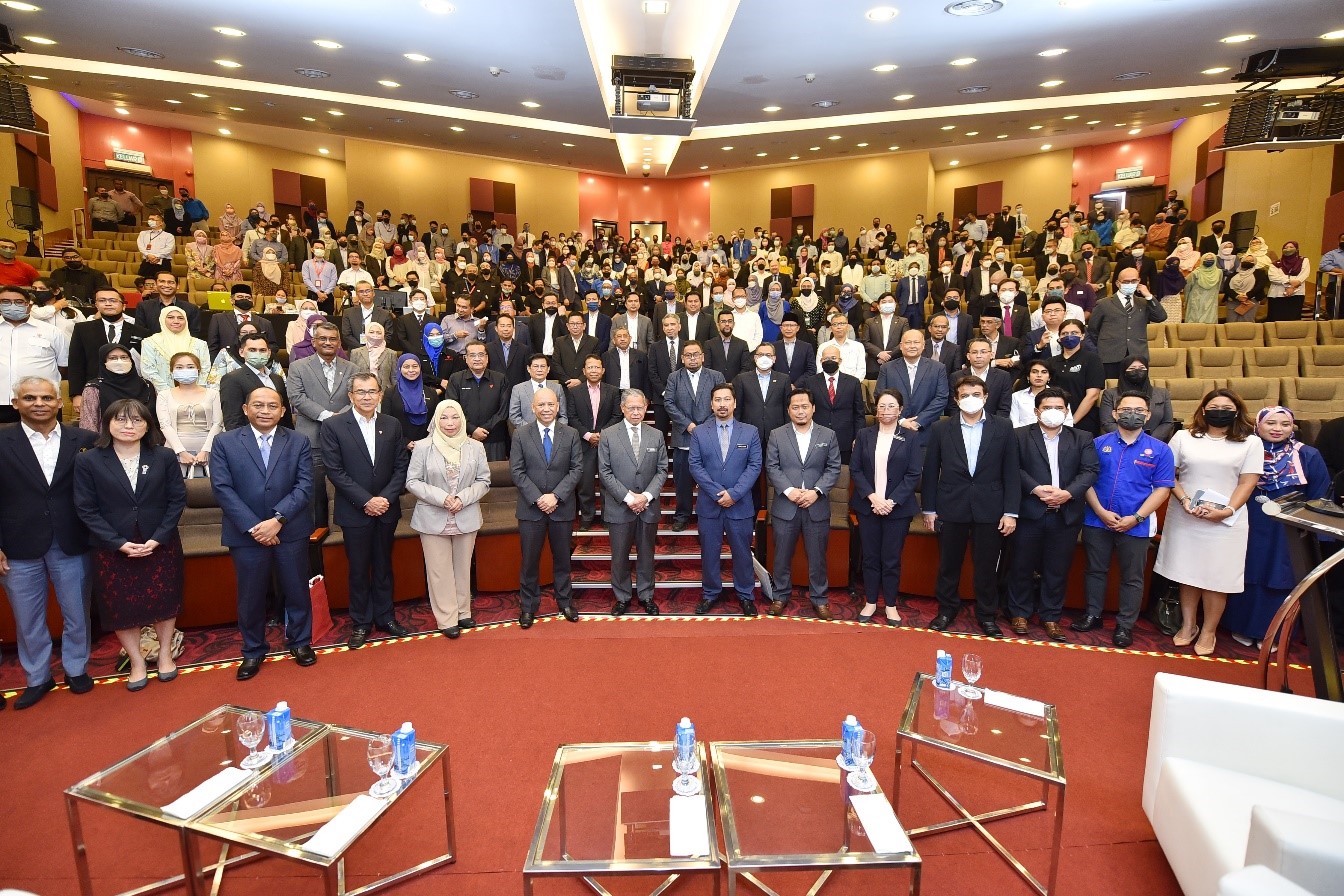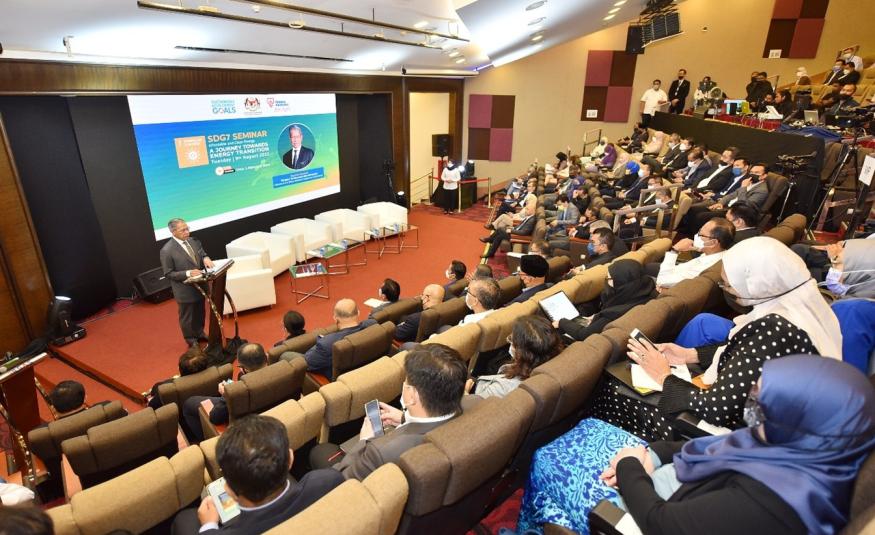KUALA LUMPUR August 12 - Tenaga Nasional Berhad (TNB), recently hosted a seminar in collaboration with the Economic Planning Unit, Prime Minister’s Department (EPU), to foster greater awareness and understanding of the nation’s sustainability agenda. Themed “Sustainable Development Goal 7 (SDG7): A Journey Towards Energy Transition”, the seminar discussed Malaysia’s journey towards energy transition.
The event was also a platform to showcase TNB’s role as a key driver of the country’s energy transition aspiration, in line with the United Nation’s Sustainable Development Goal 7 (SDG7).
The half-day seminar was attended by over 1,000 participants, including senior leaders from both public and private sectors. It was officiated by Minister in the Prime Minister’s Department (Economy), Dato’ Sri Mustapa bin Mohamed, who delivered a keynote speech.
“The Government is pleased to see strong commitment of the private sector’s participation in clean energy and green growth projects as exhibited by TNB. Malaysian public-listed companies (PLCs) are also to be commended for putting higher priority in environmental, social and governance (ESG) factors. It is laudable to witness private sector embracing sustainability by incorporating ESG agenda into their core strategies, policies, operations and even CSR programmes,” Dato’ Sri Mustapa Mohamed said in his keynote address.
The seminar also featured a panel of speakers comprising Datuk Fazlur Rahman Zainuddin, Chief Strategy and Ventures Officer, TNB; Gan Pek Chuan, Head of Sustainable and Resilient Development, UNDP Country Office for Malaysia, Singapore and Brunei; Syed Malek Faisal Syed Mohamad, Head of Business Development, Renewable Energy, GENTARI and Steven Arokiasamy Thangaraju, Council Member, Federation of Malaysian Manufacturers (FMM).
Handling the energy trilemma involving energy security, environmental sustainability and energy equity warrants a robust national energy transition and the commitment across the public and private sectors to support the country’s United Nations’ Sustainable Development Goal (SDG) targets.
Environmental, Sustainability and Governance (ESG) is increasingly becoming a critical business requirement at both national and global levels, hence it is vital for businesses to shape the route to innovation across products and services for them to stay ahead of the disruption. Additionally, the Covid-19 pandemic has accelerated expectations from stakeholders that companies must drive societal impact, environmental sustainability and inclusive growth.
In this regard, TNB had announced its goal earlier this month to fast-track the pursuit of its sustainability aspiration of net zero emissions by 2050, in ongoing efforts to achieve its ESG targets, while ensuring continued business growth for the national utility company.
“At Tenaga Nasional, we believe that energy transition has to be done responsibly and collaboratively. As we decarbonise power generation systems, it is essential to rigorously explore new ways and technologies, while making new investments within the most feasible time frame and through strategic partnerships,” said Datuk Fazlur Rahman Zainuddin, Chief Strategy and Ventures Officer of TNB.

These initiatives cut across the electricity value chain, from transitioning power generation to cleaner sources; enhancing the Grid of the Future (GoTF) to enable more green solutions; and facilitating consumer participation in the energy transition, including through electric vehicle (EV) adoption.
On the need for interconnection between countries, Datuk Fazlur described that alongside Malaysia, neighbouring countries are also aspiring to decarbonise and increase renewable energy in their energy mix. Interconnection enables higher levels of renewable energy for each country through the exchange of clean energy across borders. This propels the nation towards achieving these SDG targets.
Discussions at the event also revolved around the challenges and opportunities of the energy transition, with topics ranging from competitive energy cost, managing natural resources and mitigating these cost factors through collaborations. Panellists also covered other focus areas such as: significant shift of investors towards new technology, energy literacy amongst the public and effective policies in providing incentives to empower climate action and clean energy. In addition, industry leaders were given the opportunity to exchange views on ESG opportunities and priorities. Participants were also familiarised with TNB’s work to stay ahead in this transformation process.
Concluding the seminar, Abdul Razib Dawood, CEO of the Energy Commission (Suruhanjaya Tenaga or ST) presented a paper entitled ‘Public Role Towards the Future of Clean Energy in Malaysia’.
The paper discussed the energy trilemma further with suggested actions to focus on for each of the elements and the importance of public support to realise the Twelfth Malaysian Plan. - DagangNews.com










